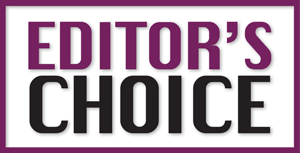
Since the Lancet Commission report in 2020, we have all been aware that untreated hearing loss is potentially one of the biggest modifiable risk factors for dementia in midlife. Hearing loss is also associated with other risk factors for dementia, such as social isolation and loneliness. Our Editors’ Choice paper examines these related factors and suggests that the association between hearing loss and memory issues may be fully explained by psychosocial factors. This should encourage us all to ensure that we pay attention to our patients’ and our own social wellbeing throughout our lives. Many thanks as always to our reviewers for all their hard work and contributions.
Nazia and Munir Hannah Cooper
Goodwin, Hogervorst and Maidment (2023) note that adults with hearing difficulties may be more likely to report problems with memory, irrespective of the age of the individual. Results indicate that a stronger sense of psychosocial wellbeing seems to equate to reports of less difficulty with subjective memory. Findings promote a psychosocial cascade association between hearing difficulty and cognitive impairment, perhaps more so than the common cause model appropriated in existing research regarding hearing and cognitive decline. Hearing loss is often progressive in nature, thus the group sought to survey adults older than 18 years of age, a breakaway from research on cognition and hearing loss and its more usual emphasis on investigation of the impact on older adults. A total of 479 participants offered personal information such as age, education, occupation and hearing aid use, with estimated daily hours of use. Additional measures of loneliness, social isolation, depression, physical activity, cardiovascular disease and walking were included. Although participants with hearing difficulties reported greater social isolation and sense of loneliness, interestingly, there appeared no difference in reported rates of depression to those with typical hearing thresholds. Physical activity impacted on reported wellbeing, as did experience of disease in older adults. However, the study notes that similarly to the current body of evidence regarding hearing and cognition, it is likely that psycho-social wellbeing plays a crucial role in outcome. Thus, the use of hearing technology and person-centred care are key considerations, alongside personal physical activity levels and sense of social connection.



